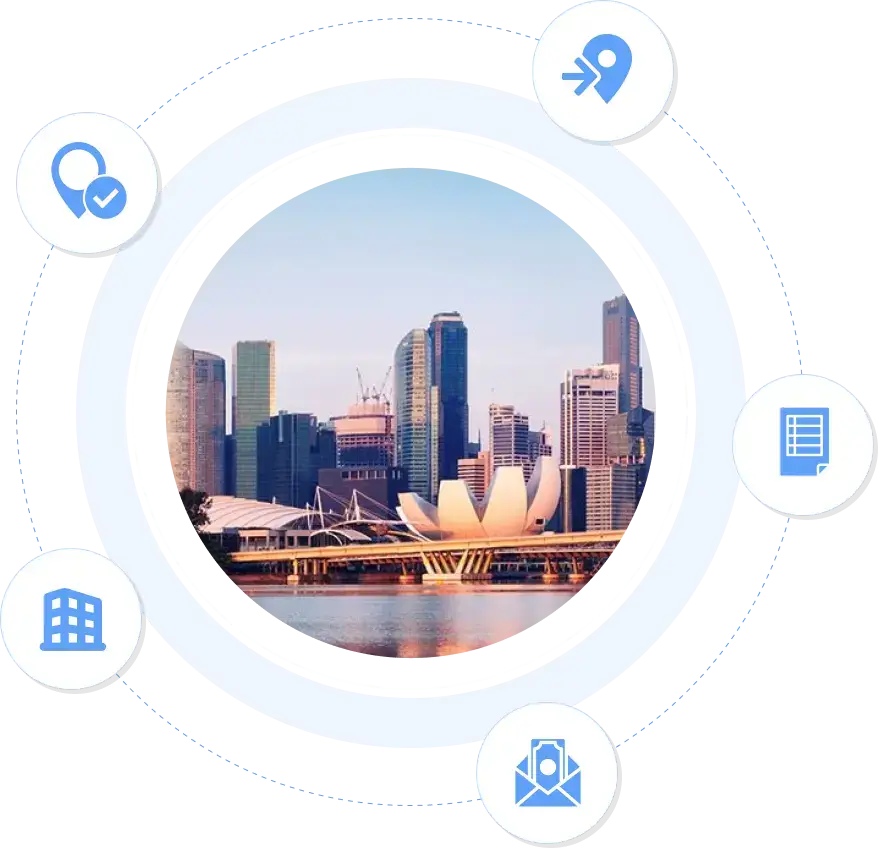Navigating Singapore Company Expenses: What's Deductible and What's Not
Topics To Be Discussed
Understanding the Concept of Tax-Deductible Expenses in Singapore
Tax-deductible expenses are fundamental in reducing the size of a company's taxable income. Essentially, these expenses are costs recognized by tax authorities as exempt from taxation. In other words, these expenditures, when properly categorized and documented, do not result in tax liabilities for the Singapore company.
Conversely, non-deductible expenses don't meet the criteria for a tax deduction and cannot be applied to reduce your taxable income.
Consider a scenario where a company reports an annual income of S$1 million, and within this, declares business expenses totaling S$200,000. Of these expenses, S$150,000 are classified as deductible, while S$50,000 fall under the non-deductible category. In this case, the company's taxable corporate income is calculated by subtracting the deductible expenses (S$150,000) from the total income (S$1 million), resulting in a taxable income of S$850,000.
This clear differentiation between deductible and non-deductible expenses directly influences a company's taxable income and, consequently, what it owes to the Singapore tax authorities.
Tax-Deductible Business Expenses for Singapore Companies
In Singapore, deductible business expenses are rigorously defined by law as costs that are "wholly and exclusively incurred in the production of income." Such expenses must satisfy specific conditions to qualify for deduction:
- Exclusivity in Income Production: Only expenses solely related to generating income for the business are considered deductible. These costs must be directly linked to the company's revenue-generating activities.
- Non-Contingent Liability: These expenses must not be contingent on an uncertain future event. The expenses should have been incurred due to a legal liability, irrespective of the actual date of payment.
- Revenue Nature: Deductible expenses are those related to day-to-day operations of the business, not capital expenditures. Only expenses linked to the operational functioning of the business are eligible for deduction.
- Compliance with Income Tax Regulations: Expenses must not be prohibited from deduction as per the provisions of the Singapore Income Tax Act 1947.
Non-Deductible Business Expenses in Singapore
Non-deductible business expenses in Singapore are costs that don’t meet IRAS’s criteria for deduction, encompassing payments made by you or your employees that fail to fulfill the stipulated conditions.
IRAS defines non-deductible business expenses as one of the following:
Personal Expenses: This category comprises costs associated with personal activities or amenities that aren't directly related to the operation or generation of income for the business. For example, expenses for leisure or entertainment that aren't pertinent to the business's functioning are not deductible.
Capital Expenses: Expenses used for capital purposes rather than operational ones are not deductible; for example, expenses linked to incorporating a company or acquiring fixed assets that contribute to the company's structure but are not considered day-to-day operational expenditures.
Considering Singapore?
Experienced team. Affordable cost. Online platform.
Some Examples: Deductible vs. Non-Deductible Business Expenses
IRAS permits companies to report the following items as deductible business expenses in Singapore:
- Accounting fees
- Administrative expenses
- Advertisement
- Auditors' remuneration
- Bad debts (trade debtors)
- Bank charges
Non-deductible expenses, according to the IRAS, comprise funds allocated to:
- Amortisation
- Bad debts (non-trade debtors)
- Certificate of entitlement (COE) for motor vehicles
- Voluntary contributions to CPF (refers to CPF contributions exceeding the statutory rate)
- Topping-up Employees' CPF MediSave accounts on their behalf
- Interest incurred on late CPF contributions
Enhanced Tax Deductions for Singapore Firms: Incentive Schemes and Benefits
Corporate Volunteer Scheme (CVS): Companies may claim a generous 250% tax deduction on qualifying expenditures, incurred between 1st July 2016 and 31st December 2026, when they allocate employees to volunteer work, including secondments, to Institutions of a Public Character (IPCs).
Double Tax Deduction for Internationalisation Scheme: Companies aspiring to expand their operations beyond Singapore can benefit from this scheme. It offers a double tax deduction on qualifying expenses incurred between 1st April 2012 and 31st December 2025. This deduction applies to expenses related to international market expansion and investment development activities, creating an incentive to pursue global ventures.
Research and Development (R&D) Tax Measures: Singapore offers R&D tax deductions to foster innovation and encourage extensive research and development activities within the country. These deductions aim to enhance the innovative capabilities of businesses and stimulate continuous R&D efforts, contributing to Singapore's technological advancements and economic growth.
Enterprise Innovation Scheme (EIS): Companies engaging in Qualifying R&D and IP registration in Singapore can benefit from enhanced tax deductions or allowances under the EIS. This scheme encourages companies to invest in innovation, fostering an environment conducive to technological advancement and intellectual-property development.
How We Can Help
At CorporateServices.com, we specialize in guiding businesses through the complexities of Singapore's tax regulations. From meticulous documentation to strategic financial planning, we provide tailored solutions to ensure accurate reporting and adherence to IRAS requirements.
Our services include:
- Expert Tax Guidance: Our seasoned professionals offer tailored advice to ensure accurate expense categorization, maximizing tax benefits while complying with IRAS requirements.
- Efficient Incorporation: We streamline Singapore company incorporation with swift, customized support, catering to local entrepreneurs and international investors alike.
- Comprehensive Solutions: From incorporation to ongoing company compliance, our CSP Platform supports your company's growth and success in Singapore's dynamic business environment.
Contact us to navigate expenses, comply with tax rules, and streamline incorporation in Singapore.









